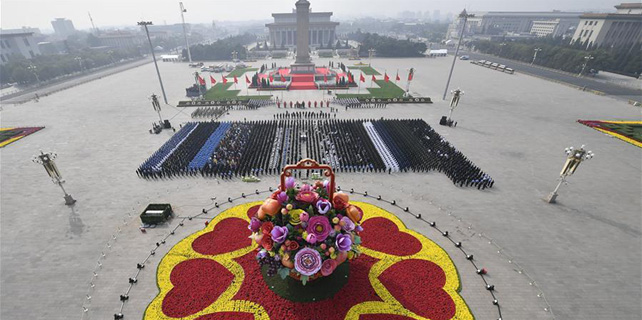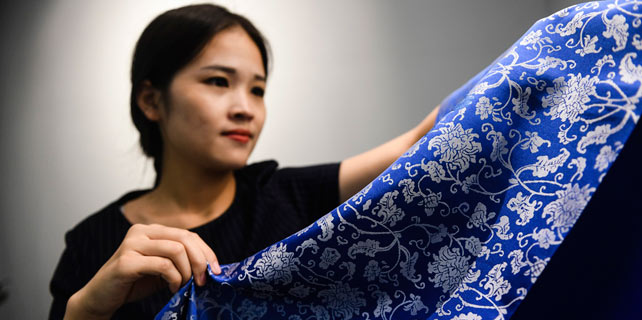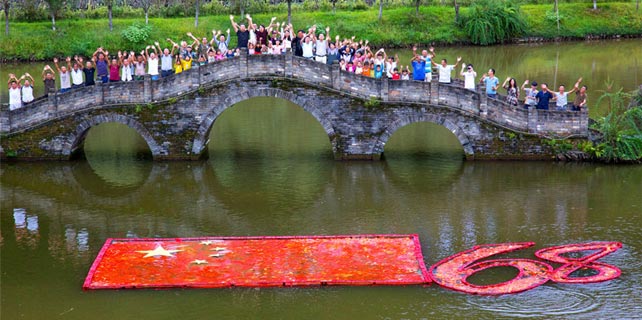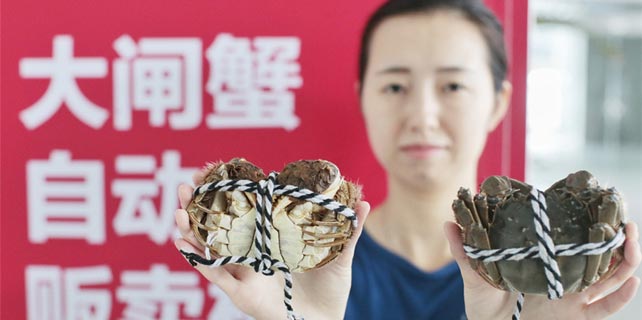Ancient tales and traditions can hold new magic
There's a story that's been told and retold so many times that it was probably true in some form or another at some point in time. I heard it like this:
A boy is riding with his father when they come to a traffic jam. Up ahead, a huge truck has got itself jammed under a bridge and all the tow trucks, cranes and emergency workers can't pry it loose. The boy innocently says to his father: "Why don't they let the air out of the tires?" And the day is saved.
It echoes a tale from 2,000 years ago, the story of 6-year-old Cao Chong, son of Cao Cao, prime minister of Han. The emperor of the Wu Kingdom sent Chong's father a fabulous birthday present, something no one in the land had ever seen before - an elephant.
Before long people begin speculating on how much the great gray beast must weigh, and then the betting begins. And soon enough, with so much at stake, it becomes imperative to establish the beast's weight. But, alas, none of the scales in the kingdom are big enough to manage the behemoth.
Young Cao Chong has the bright idea: he leads the elephant onto a barge, has men mark the water line, then leads the elephant back off. He then instructs the men to load rocks onto the barge until the waterline is matched. Then the rocks are weighed, one-by-one, added up and subtracting his own weight, of course, Cao Chong produces the answer.
The story is an intuitive application of the principle of buoyancy, first described in the West by the ancient Greek scientist Archimedes, who predated Cao by a couple of centuries, but it's also a clear example plain old common sense. To this day parents in China tell their children to think like Cao Chong, in other words, outside the box.
The story of "the most famous child prodigy in Chinese history" is delightfully retold in the new children's book Cao Chung Weighs an Elephant (Arbordale 2017) by Songju Ma Daemicke and illustrated by Christina Wald.
Songju grew up in the northeastern province of Jilin in a small town that had no library. How she got from there to becoming a published author in America and her second language is something of a remarkable story in itself.
As she put it: "My road to be an author was long, winding, and bumpy, crossing over two continents."
The slogan of the school she went to was: "If you master math, physics and chemistry, you can conquer the world." Her PhD thesis was a comprehensive study of earthquake tremors before she switched to computer science, picking up a master's at DePaul University and going to work as a software engineer for Motorola.
Having children and reading them classic stories reignited her childhood passion for the stories her grandfather used to tell back in China. She took creative writing courses and workshops, worked up draft after draft to create two children's books based on her grandfather's stories: one about Cao Chung and another, her first book, A Case of Sense, about a greedy man who tries to charge people for smelling his delicious meals.
After numerous rejections from agents and publishers, she submitted both to Arbordale Publishing just before taking a vacation with her family in China, where she visited the historic city of Yangzhou.
There, at the famous temple of Wenchang, she followed the ancient tradition of students hoping to become imperial scholars and burned incense before the image of Wenchang, asking him to bless her stories, as the statues of Confucius and Zhu Xi looked on.
"All three seemed to be smiling at me," she said.
And apparently they were. About a month later Arbordale emailed to say they were interested. Her first book, A Case of Sense, was nominated for a 2018 Monarch Award. Cao Chong Weighs an Elephant promises to do equally as well.
Contact the writer at chrisdavis@chinadailyusa.com









